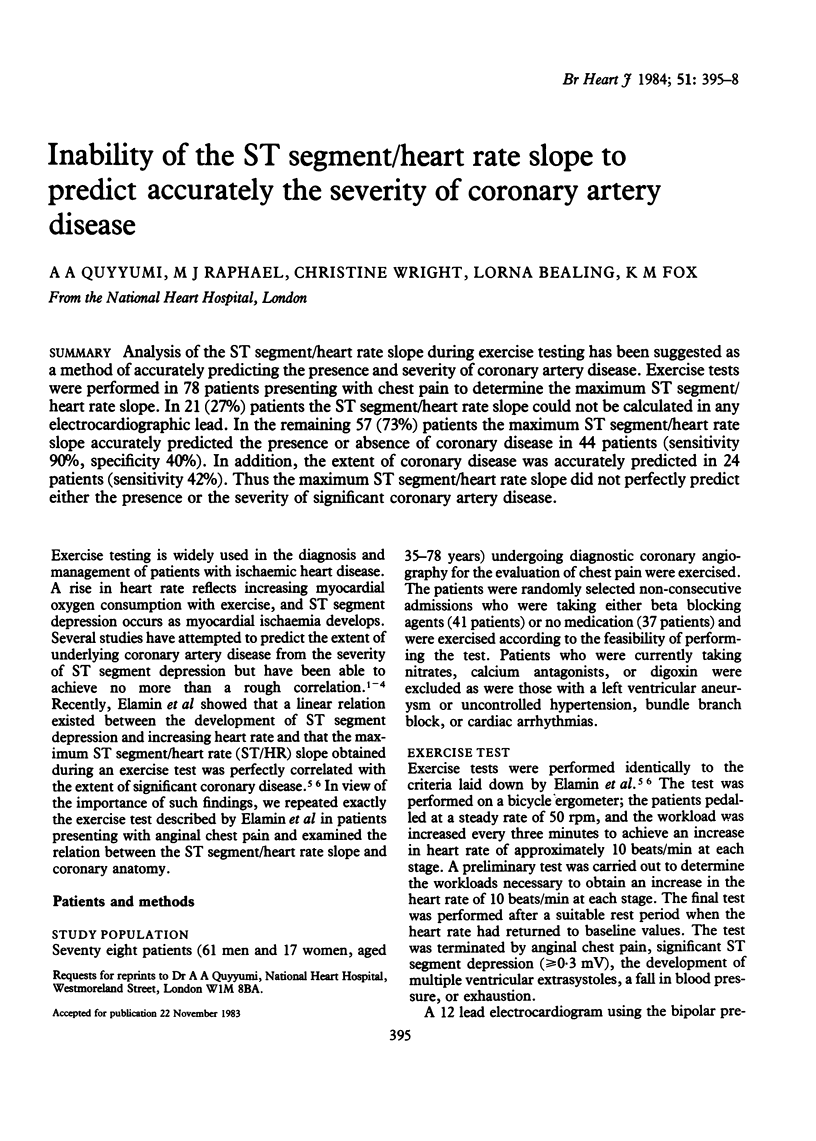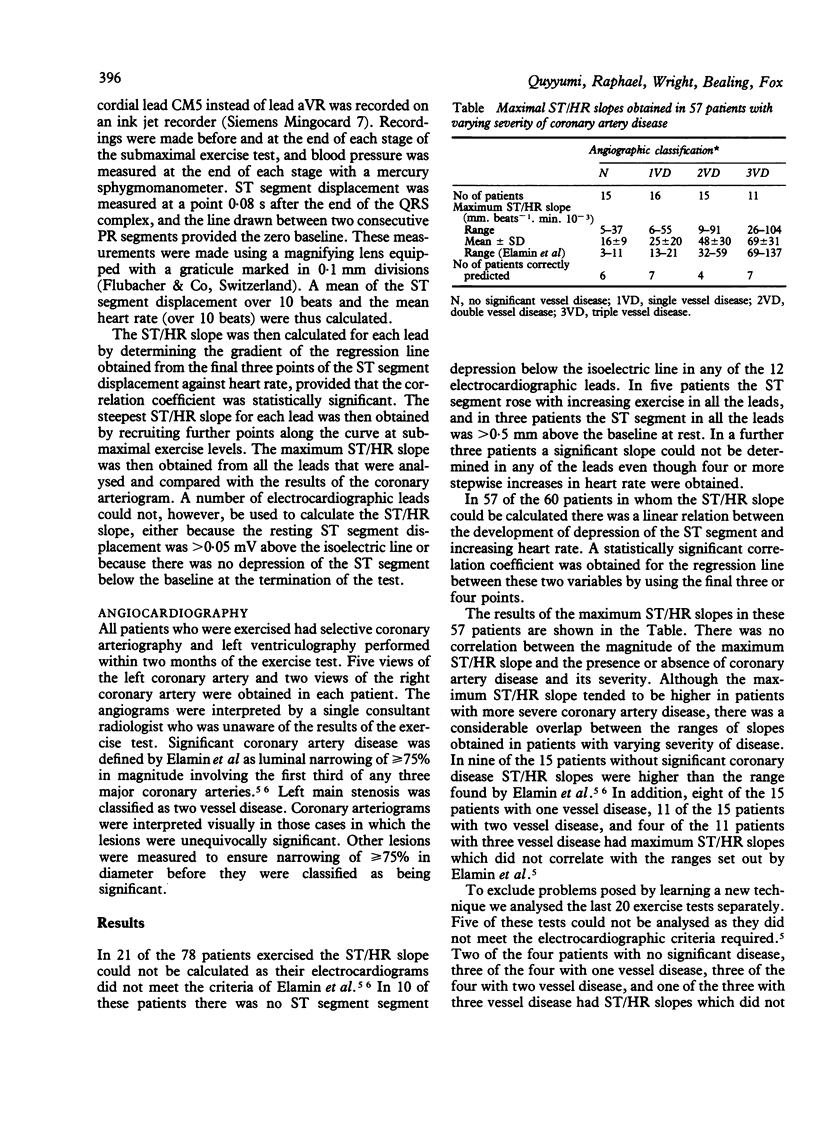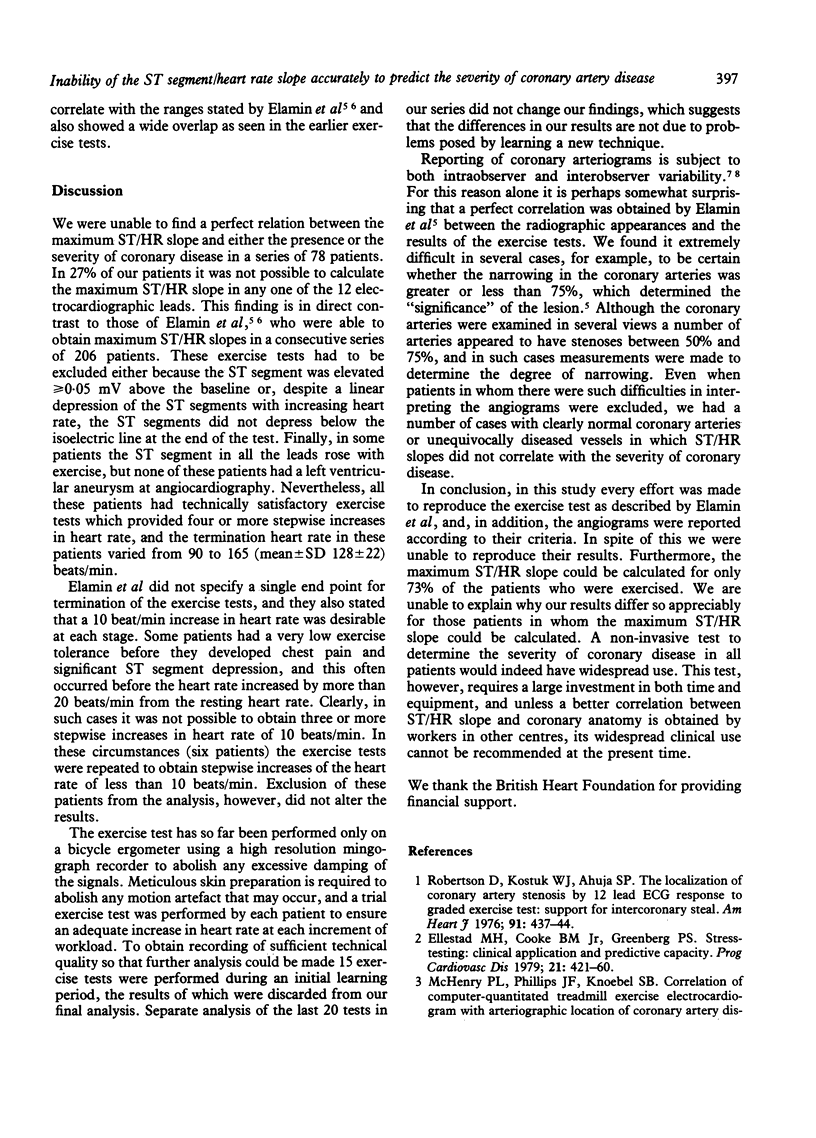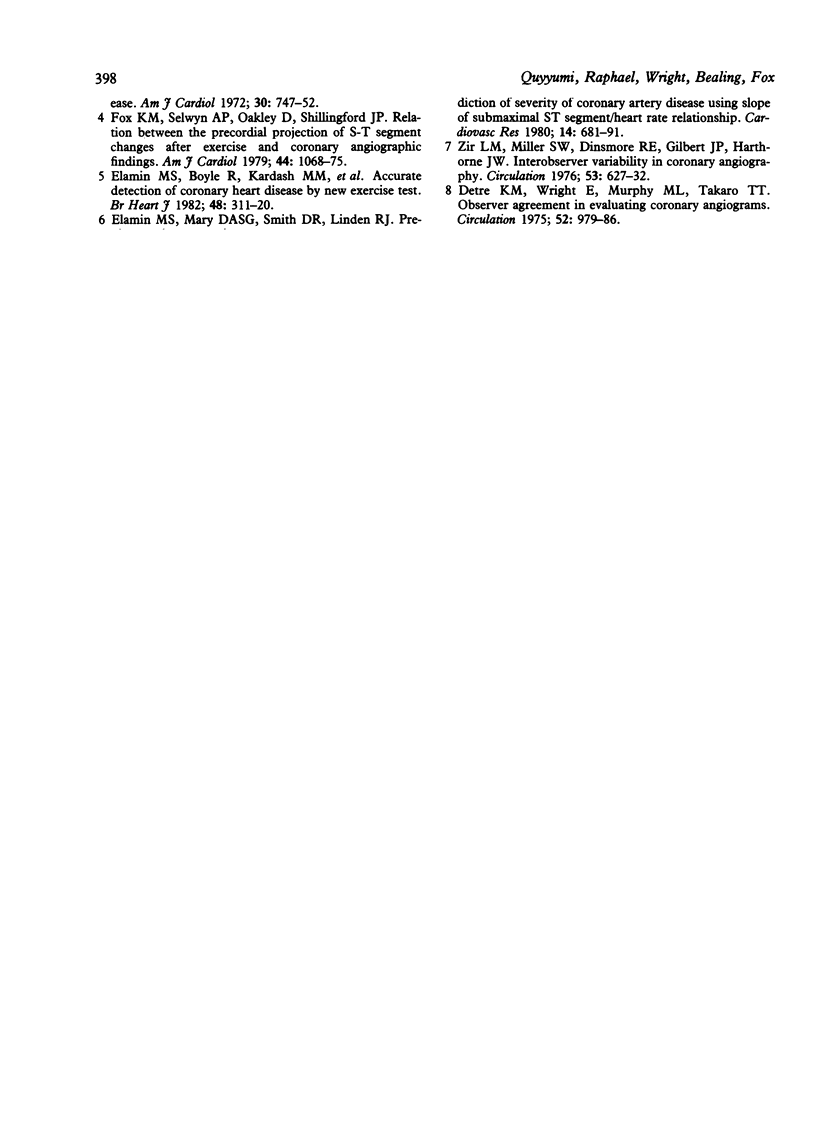Abstract
Analysis of the ST segment/heart rate slope during exercise testing has been suggested as a method of accurately predicting the presence and severity of coronary artery disease. Exercise tests were performed in 78 patients presenting with the chest pain to determine the maximum ST segment/heart rate slope. In 21 (27%) patients the ST segment/heart rate slope could not be calculated in any electrocardiographic lead. In the remaining 57 (73%) patients the maximum ST segment/heart rate slope accurately predicted the presence or absence of coronary disease in 44 patients (sensitivity 90%, specificity 40%). In addition, the extent of coronary disease was accurately predicted in 24 patients (sensitivity 42%). Thus the maximum ST segment/heart rate slope did not perfectly predict either the presence or the severity of significant coronary artery disease.
Full text
PDF



Selected References
These references are in PubMed. This may not be the complete list of references from this article.
- Detre K. M., Wright E., Murphy M. L., Takaro T. Observer agreement in evaluating coronary angiograms. Circulation. 1975 Dec;52(6):979–986. doi: 10.1161/01.cir.52.6.979. [DOI] [PubMed] [Google Scholar]
- Elamin M. S., Boyle R., Kardash M. M., Smith D. R., Stoker J. B., Whitaker W., Mary D. A., Linden R. J. Accurate detection of coronary heart disease by new exercise test. Br Heart J. 1982 Oct;48(4):311–320. doi: 10.1136/hrt.48.4.311. [DOI] [PMC free article] [PubMed] [Google Scholar]
- Elamin M. S., Mary D. A., Smith D. R., Linden R. J. Prediction of severity of coronary artery disease using slope of submaximal ST segment/heart rate relationship. Cardiovasc Res. 1980 Dec;14(12):681–691. doi: 10.1093/cvr/14.12.681. [DOI] [PubMed] [Google Scholar]
- Fox K. M., Selwyn A., Oakley D., Shillingford J. P. Relation between the precordial projection of S-T segment changes after exercise and coronary angiographic findings. Am J Cardiol. 1979 Nov;44(6):1068–1075. doi: 10.1016/0002-9149(79)90171-1. [DOI] [PubMed] [Google Scholar]
- McHenry P. L., Phillips J. F., Knoebel S. B. Correlation of computer-quantitated treadmill exercise electrocardiogram with arteriographic location of coronary artery disease. Am J Cardiol. 1972 Nov;30(7):747–752. doi: 10.1016/0002-9149(72)90149-x. [DOI] [PubMed] [Google Scholar]
- Robertson D., Kostuk W. J., Ahuja S. P. The localization of coronary artery stenoses by 12 lead ECG response to graded exercise test: support for intercoronary steal. Am Heart J. 1976 Apr;91(4):437–444. doi: 10.1016/s0002-8703(76)80324-9. [DOI] [PubMed] [Google Scholar]
- Zir L. M., Miller S. W., Dinsmore R. E., Gilbert J. P., Harthorne J. W. Interobserver variability in coronary angiography. Circulation. 1976 Apr;53(4):627–632. doi: 10.1161/01.cir.53.4.627. [DOI] [PubMed] [Google Scholar]


